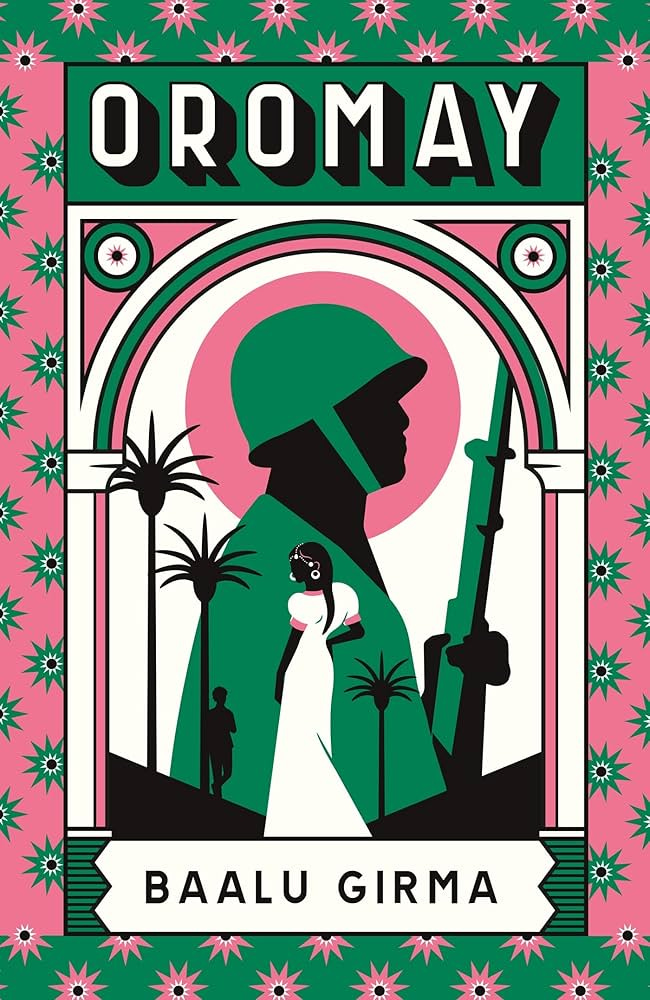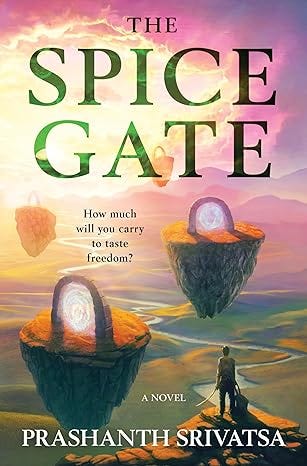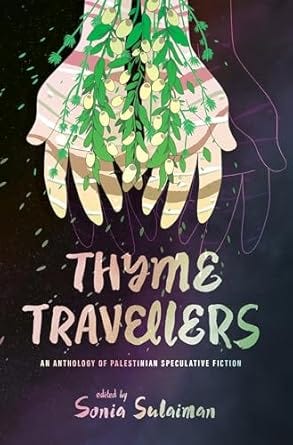Hello everyone, and welcome to another issue of the Words for Worlds newsletter.
What I’m Reading
In 1983, the Ethiopian writer Baalu Girma published his sixth novel, Oromay. Within the week, Oromay was banned in Ethiopia, Girma was fired from his job at the Ministry of Information, and copies of the book were pulped at a sugar factory. Six months later, Girma disappeared, never to be heard from again. It is now common consensus that the writer was murdered on the instructions of the Derg regime, which ruled Ethiopia as a one-party State at the time.
Four decades on, Oromay - which grew to be one of the most famous and well-loved of Ethiopian novels, not least because of the circumstances around its publication, and its circulation underground through samidzat - now has an English translation, rendered from the Amharic by David DeGusta and Mesfin Felleke Yirgu, and brought out by Quercus Press.
My own interest in contemporary Ethiopia was sparked when I came across Hiwot Teffera’s difficult-to-find Tower in the Sky. Tower in the Sky chronicles the rise of the left-wing student movement that toppled Emperor Haile Selassie in 1974, and which was then either co-opted or violently destroyed by the Derg, the very government/regime that it helped bring to power. The events of Oromay take place a decade after Tower in the Sky: the Derg, led by former military officer and now President, Mengistu Haile Mariam, is firmly ensconced in power, and is engaged in a bitter conflict against an armed struggle aiming at the independence of Eritrea (then a province of Ethiopia).
The story is set around the historical “Red Star Campaign,” initiated by the Derg in 1982, designed to militarily stamp out the Eritrean armed struggle. For a period of a few months, the Ethiopian government was effectively moved to Asmara (now the capital of Eritrea), and the military operations conducted from there. The Red Star Campaign was unsuccessful. The Ethiopian army eventually had to retreat. The retreat severely dented the Derg regime, which would fall a decade later, with the triumph of the Eritrean War of Independence.
In Oromay, fiction and reality are blurred from the outset. Its first-person narrator is Tsegaye Hailemaryam, who - just like Baalu Girma - is a senior official at the Ministry of Information, and is despatched to Asmara to run the propaganda wing of the Red Star Campaign, in support of the military operations. Specifically, he is in charge of communicating the events of the Campaign in a manner palatable to the Ethiopian public: by broadcasting from the “frontline,” interviewing the Campaign’s protagonists (including Eritrean defectors), and - more directly - jamming the rebels’ radio stations, to prevent them from communicating with the public. In the process, Tsegaye finds himself sucked into the febrile and dangerous atmosphere in Asmara, a city on edge, navigating his way through military officers, spies, and double-agents. He also falls in love with Fiammetta Gilay, an Asmaran woman - a complication, as Tsegaye has a fiancee back home in Addis, awaiting his return from the Campaign. Eventually - in an early instance of embedded journalism - Tsegaye accompanies the Ethiopian army on a violent - and doomed - operation to occupy the strategically vital Peak 1702, an event that compels him to reckon with the consequences of war, and of his own part in the destruction around him.
I read Oromay with the circumstances of its publication at the back of my mind: its banning and pulping, and the persecution, abduction, and murder of its author. I finished it bemused. Nothing in the novel seemed particularly incendiary, or something that would drive a regime to murder. Tsegaye is no rebel, defector, or even a dissenter. For much of the novel, he is indeed a regime man: not a fanatic, but a man who is broadly on board with the goals of the Red Star Campaign, and certainly not a man who questions the legitimacy of the regime he is serving. His experiences at the frontline make him question the futility of war, but scarcely radicalise him. And while, at various points in the book, questions are raised, both about the Campaign and about corruption within the Derg regime, these are raised in the course of debate and dialogue between regime officers (including Tsegaye) who are, at bottom, committed to preserving and maintaining it: an immanent critique, at the highest. Hardly something, you’d think, that would shake a regime!
But then I remembered Vaclav Havel’s famous speech, ‘Words on Words,’ where he notes how in more directly repressive or authoritarian States, words possess a salience and a charge that may be very difficult to comprehend for an outsider: more power than “a whole train of dynamite,” in Havel’s memorable words. Of course, we do not need to look to the “designated” authoritarian States of the past and the present to understand this. Havel delivered his speech to the German Booksellers’ Association, and drew a distinction between the “considerable freedom of speech” enjoyed by the West Germans, and the repression in his own land. Now, anyone who has been keeping up with recent events will be aware that in this same Germany (now unified Germany, for better or for worse), the most innocuous speech that comes close to hinting at the truth of the State of Israel’s genocide of the Palestinians has been met with bans, deplatforming, police violence, and - most recently - attempted deportation. Words, thus, can be more powerful than a whole train of dynamite just about anywhere - as long as they are wielded - in the words of Steve Salaita - “at the point of occlusion.”
Palestine was thus on my mind as I perused the secondary literature around Oromay, trying to understand what exactly was it about these mild words that had infuriated the Derg so much - to the point of killing. And it seems that what infuriated the Derg so much was precisely what infuriates the more modern-day variants of the Derg, that is, the governments of countries like Germany and the United States. Telling the truth, even in its mildest and most inoffensive form, is unpalatable when it occurs at the point of occlusion.
For the Derg, thus, the success of the Red Star Campaign, and its own moral integrity, were the pillars of its legitimacy and its claim to rule. Tugging at one strand of that web, even the lightest of tugs, threatens to unravel the entire structure. And so, one does not have to be a radical or a militant to attract the wrath of a Derg: one question hinting at the truth is enough, as long as it is asked at the point of occlusion. So it was that Girma had to be murdered, and so it is that modern-day governments unleash the full range of their repressive arsenal against those who seek to tell the truth about Palestine. The Derg is long gone, but Oromay has a more lasting significance, because it tells us that the Derg is never truly gone. In some places it is better-hidden, until you find the point of occlusion, and then - as Marx wrote about the June Revolution of 1848 - it turns out that you have “bared the head of the monster by knocking off the crown which shielded and concealed it.”
And what of the novel itself? I finished Oromay in a morning and an afternoon. The novel is 400 pages long, but it is immensely readable. The narrative is linear and the events propulsive. Much like Tower in the Sky - a similar work of autobiographical fiction - Oromay avoids the peril of turning itself into a tedious, didactic sermon from a pulpit. If that were the case, its value today would be little more than that of an important historical artefact. It is, however, more than that.
That said, one of Oromay’s significant weaknesses is what one review calls its “unreconstructed sexual politics.” The two women in the novel - Fiammetta Gilay and Roman Hiletework (Tsegaye’s fiancee) - are almost entirely seen through Tsegaye’s eyes. Fiammetta’s role - and exercise of agency - does become more poignant towards the end of the novel, but this is too little and too late. For a while, I wondered if Girma was demonstrating fidelity to the actual social structures and gender relations that existed in Ethiopia/Asmara in the 1980s, without inserting his own views into the narrative, but the more the book went on, the more difficult this illusion became to sustain.
I also think that there is even less of an excuse for this when you read Oromay alongside Tower in the Sky: the protagonist of Tower in the Sky is a woman (a thinly fictionalised version of Teffera herself), and although that novel’s protagonist is brought into the struggle via a charismatic older male student, she discovers herself through the course of the story, and is unrecognisable by the end of it (there is, in fact, an entire scene involving a woman’s prison, where women militants at the frontline of the struggle have been incarcerated). So clearly, this is not a milieu where the grammar of emancipation and liberation is unknown. Girma’s depiction of his women characters is a choice, and one that renders his world a narrower, more crimped version of what it could have been.
On finishing Oromay, my overwhelming emotion was that of a dimly-felt grief. Tower in the Sky is a tragic novel, a novel of death, of political unraveling, and the destruction of dreams. However, the world of Tower in the Sky is a world in which schools and university campuses are awash with dreamers, idealists, and militants (sometimes all three embodied in the same person), the horizon of another world has not yet been entirely closed off despite immense violence and repression, and there is hope for salvage out of an imminent wreckage. In Oromay, however, all that is gone. It felt hugely significant, for instance, that the novel has not a single mention of the student movement, even though 1982 is only eight years removed from 1974. The erasure feels absolute and irrevocable. If Tower in the Sky felt like an elegy that carried within it a single, chrysalis-ensconced note of a melody of resurrection, then Oromay feels like the music has, at last, died away, and all we are left with is a desolation called peace.
What’s Happening at Strange Horizons
From this week’s issue, I loved Adam Ford’s poem “The Strangers Came.”
The Indian Scene
The Locus Award shortlist is out, and congratulations to Prashanth Srivatsa for carrying the Indian SF novelists’ flag: The Spice Gate is the lone Indian novel-length finalist, in the debut novel category. Remember, The Spice Gate has an affordable Indian edition, so you can pick it up from your nearest bookshop. And congratulations to all the other finalists as well!
Recommendations Corner
I’ve been meaning to get to this for a while, and here’s an excellent reason: Akankshya Abismruta has just written an excellent review of Sonia Suleiman’s Thyme Travelers: An Anthology of Palestinian Speculative Fiction. Check it out, and then check out the book!






One of the most beautiful book reviews I've ever read, thanks Gautam.